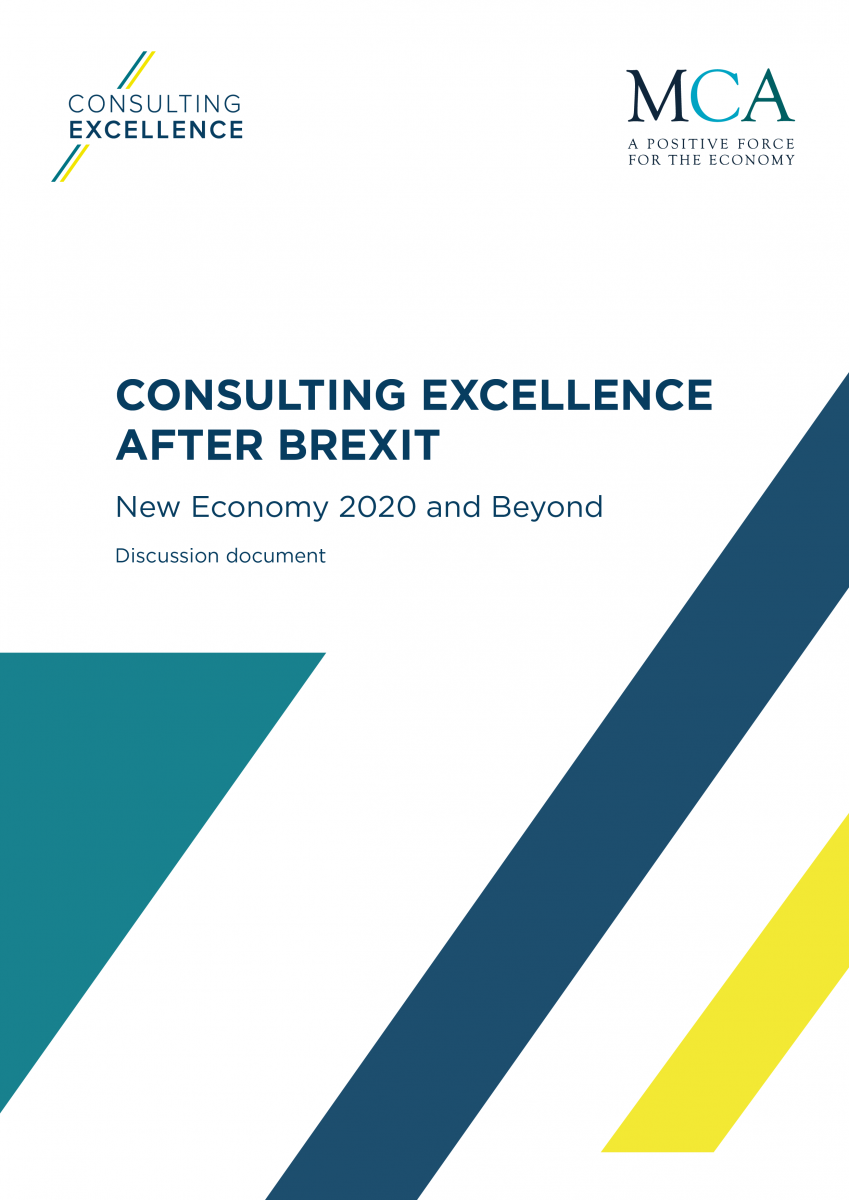The MCA is confronting the implications of Brexit proactively and expertly.
In the run-up to the referendum, MCA member firms indicated that they were opposed to leaving the European Union, owing to market opportunities and access to skilled labour. But our optimistic profession is now determined to make whatever happens next work. Understandably. It is in the nature of management consulting that its value comes from helping clients deal with problems, supporting them as they face uncertainty and ambiguity. Brexit has introduced as range of new uncertainties into the economic and political outlook – as well as opportunities. Our industry is already helping business and government address these issues.
 To coordinate our efforts on Brexit, the MCA has launched a ten-point Brexit Action Plan. In the short-term, our focus is on Government. The departmental changes made since the start of Theresa May’s premiership illustrate the complexity of the challenge the UK faces. The Government has to negotiate the terms of disengagement and re-engagement with the EU, set a new economic course and enlarge the UK’s opportunities in other markets. Already, individual MCA members are being called in to support with these challenges. And the Association has been asked to provide information and advice to assist individuals and politicians with their decision-making. The principal vehicle for this is the Government’s Professional and Business Services Council, where officials have highlighted the helpful proactivity of the MCA’s response to Brexit.
To coordinate our efforts on Brexit, the MCA has launched a ten-point Brexit Action Plan. In the short-term, our focus is on Government. The departmental changes made since the start of Theresa May’s premiership illustrate the complexity of the challenge the UK faces. The Government has to negotiate the terms of disengagement and re-engagement with the EU, set a new economic course and enlarge the UK’s opportunities in other markets. Already, individual MCA members are being called in to support with these challenges. And the Association has been asked to provide information and advice to assist individuals and politicians with their decision-making. The principal vehicle for this is the Government’s Professional and Business Services Council, where officials have highlighted the helpful proactivity of the MCA’s response to Brexit.
The nature of this response is multifaceted. Consulting is an industry in its own right and has interests. So we are surveying members on their experience of Brexit impacts and will continue to do so quarterly. From this, we will build up a picture of what Brexit is doing to MCA firms and their clients. This will help us lobby for a post-Brexit settlement that benefits both consulting and the wider economy.
And as the catalyst for much of the recent return to economic growth, supporting business with their digital and growth challenges, MCA member firms are expertly placed to help Government develop a post-Brexit industrial strategy. To that end, we are embarking on a major project, New Economy 2020 and Beyond. In this, we will harness the expertise of MCA member firms to develop a workable economic vision. As well as counteracting the challenges of Brexit, the new vision will seek to exploit opportunities. For example, while the UK will need to sustain its presence in a whole range of EU and global initiatives around digital, to avoid isolation in an inherently internationalised marketplace and value chain, there is an opportunity to reinvent some aspects of digital’s regulatory and investment environment, to foster start-ups and support their scaling and pursuit of global opportunity. Debate on these issues has started across our full range of networks and we will be holding expert roundtables in the coming months. To support the debate, we have produced an outline discussion document.
One aspect of Brexit in which MCA members are heavily invested is the degree to which the vote was a proxy for economic disaffection. Areas with above average rates of unemployment, where communities often view the return to growth in the UK since 2013 as a London and South East phenomenon, voted disproportionately to leave the EU. Whatever the dynamics of Brexit, that message, implicitly a critique of decades of over-centralisation, cannot be ignored. So, a core MCA Brexit project will examine the case for wider and deeper devolution of political and economic power, building on the momentum already built up around initiatives like the Northern Powerhouse. Our project commenced with an event on 29 September looking at the Powerhouse after Brexit and will continue with a series of roundtables.
The MCA’s Consulting Excellence initiative enshrines a fundamental reality about consulting. Our varied and diverse industry has core values, behaviours and capabilities. These are supplemented over time by new skills and techniques, and the traditional and the emergent are then deployed to meet new economic challenges. As the UK faces one of the greatest economic, diplomatic and administrative tests imaginable, consulting will do what it has always done: adapt itself to help clients. The MCA will play its part in bolstering this vital service and ensuring our great industry’s support for Government and business after Brexit represents the very best of Consulting Excellence.


